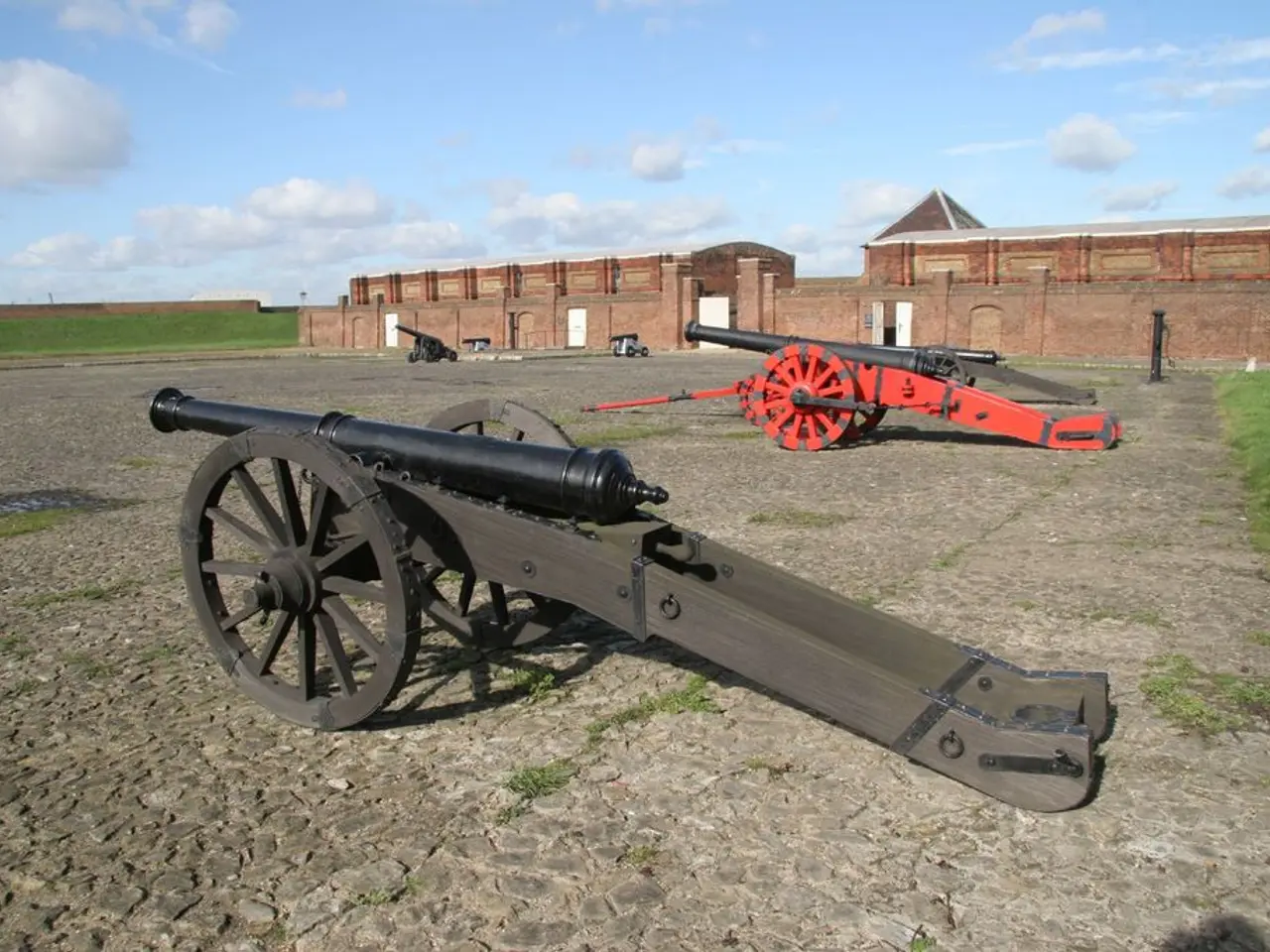Submerged English cannon discoveries off Helgoland by explorers
In the cold, clear waters of the North Sea, 16 ancient cannons have been discovered off the North Sea island of Helgoland. The cannons, dating back to around 1800, are 12-pounder cannons and carronades, and were identified by the distinctive Blomefield Ring, indicating their British origin.
The cannons were found scattered over an area of about 80 by 70 meters, with no wreckage or clear wreck structure in sight. This discovery complements earlier recoveries from the 1990s and underscores the island's significance in British naval history.
Florian Huber, an underwater archaeologist and project leader, made the announcement. The discoveries were made during systematic investigations by the Kiel-based research diving company Submaris, with the support of the working group Marine Geophysics & Hydroacoustics of the Kiel Christian-Albrechts-University.
Researchers suspect that these cannons were deliberately sunk by the British Navy before Helgoland was handed over to the German Reich in 1890. However, they are unlikely to be related to the sinking of HMS Explosion in 1807, but instead connected to an earlier period around the late 18th or early 19th century.
Helgoland's strategic importance in the North Sea makes it a fascinating site for maritime archaeology. The island was settled by Frisians and belonged to the Duchy of Schleswig since 1402. It changed hands between Britain and Germany in the 19th century, with a significant British Royal Navy presence during the Napoleonic Wars.
The British naval forces in that era commonly used carronades and 12-pounder guns, making it plausible that these recovered cannons are remnants from various naval events or British coastal defenses predating World War I.
The cannons recovered from the "HMS Explosion" in 1807 were brought ashore, whereas the newly discovered cannons remain submerged in the North Sea. These finds document the end of an era in Helgoland's maritime history and deepen our understanding of the island's past.
The discoveries confirm Helgoland's importance as a former British military stronghold, underscoring its significance in the coalition wars and British naval history. As research continues, the secrets of Helgoland's past are sure to reveal themselves, offering a glimpse into the island's rich maritime history.








